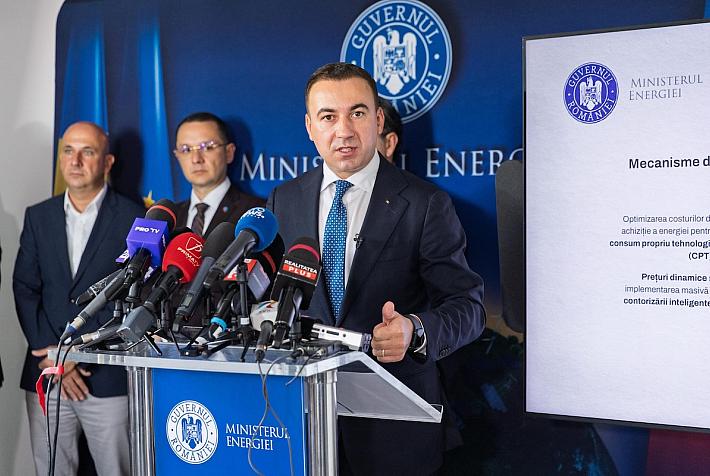World Bank lowers estimates for global growth, but Romania's outlook among brightest in Europe
 Global growth is predicted at 2.5 percent for 2012 by the World Bank, in a recent report that also forecasts a 1.5 percent growth for Romania in 2012 and 3 percent for 2013. The GDP growth forecast in the developing world is at 5.4 percent, while for developed nations, at 1.4 percent. The last two figures are down on the 6.2 and 2.7 percent growth in the institution's June 2011 estimates. The outlook for the eurozone is far worse. After estimating a very modest 1.8 percent growth last June, the World Bank now expects recession with a - 0.3 percent GDP reduction in the stricken single currency states. China will likely counterbalance with its predicted 8.4 percent economic growth in 2012.
Global growth is predicted at 2.5 percent for 2012 by the World Bank, in a recent report that also forecasts a 1.5 percent growth for Romania in 2012 and 3 percent for 2013. The GDP growth forecast in the developing world is at 5.4 percent, while for developed nations, at 1.4 percent. The last two figures are down on the 6.2 and 2.7 percent growth in the institution's June 2011 estimates. The outlook for the eurozone is far worse. After estimating a very modest 1.8 percent growth last June, the World Bank now expects recession with a - 0.3 percent GDP reduction in the stricken single currency states. China will likely counterbalance with its predicted 8.4 percent economic growth in 2012.
Despite the eurozone's afflictions, news for Romania is not so bad. The latest batch of World Bank analysis of the Europe and Central Asia region suggests Romania's relatively buoyant economy has had a beneficial effect on the area, “Although the global economic slowdown in the second quarter also affected the region, the third quarter saw activity rebound, driven by robust domestic demand, in several large middle-income countries, notably Russia, Romania and Turkey,” states the report. The regional summary goes on to highlight industrial production, where “growth rebounded strongly in the region in October, particularly in Romania, Ukraine, and Turkey.”
But the situation, in Romania and the region, is far from rosy. The World Bank warns of the ongoing effects of the eurozone crisis on trade partners. According to the World Bank, the large claims of foreign banks in Romania, relative to the size of its economy, means that transmission of tightening credit conditions to the local market “would likely be swift and potentially very damaging.” Drop in demand from the eurozone and what the report terms 'high income Europe' could also cause problems. WB analysts suggest Romanian trade is particularly vulnerable to an EU downturn. The World Bank makes several recommendations for countries in the region, including stress testing the local banking sector, looking for new growth drivers, as an alternative to the eurozone, and the prioritizing of infrastructure projects that the report deems necessary for longer term growth.
The International Monetary Fund (IMF) also recently commented on the difficulties faced by the global economy and in particular by the eurozone. After a meeting of the IMF's executive board yesterday ( Tuesday 17 ), the fund's Managing Director Christine Lagarde said “The biggest challenge is to respond to the crisis in an adequate manner and many Executive Directors stressed the necessity and urgency of collective efforts to contain the debt crisis in the Euro Area and protect economies around the world from spillovers and excessive output/income contractions.” In the same statement Lagarde stressed the importance of sufficient IMF “firepower” to tackle potential regional and global problems in the coming year and that the IMF is exploring funding options. The fund aims to raise up to USD 500 billion in additional lending resources in the coming years, based on a USD 1 trillion estimate of global potential financing needs.
Liam Lever, liam@romania-insider.com
(photo source: Photoxpress.com)












